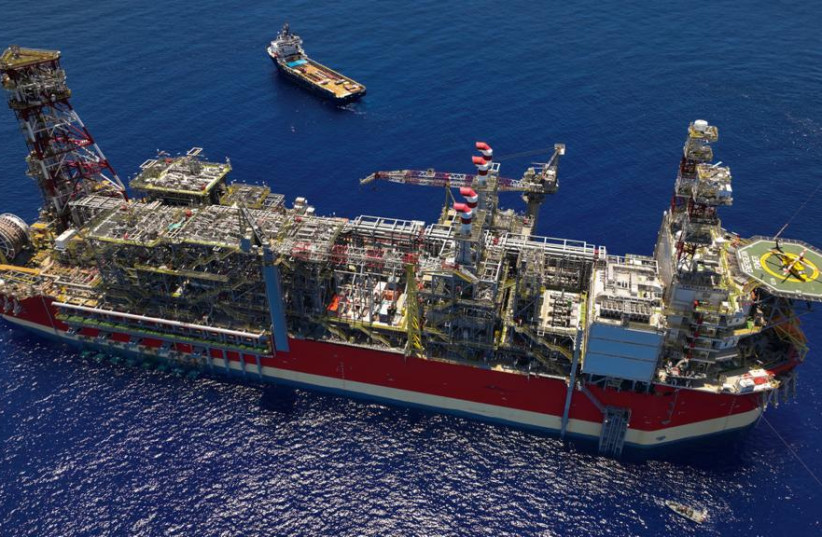Israel authorized a Qatari company to be involved in drilling for natural gas in the Kana-Sidon Reservoir that was the subject of a recently-resolved dispute with Lebanon.
In the agreement Jerusalem and Beirut signed last month, Israel was given veto power over any company’s involvement in extracting gas from the field, which, per the deal, is mostly in Lebanese waters, but crosses into Israel’s economic zone.
The Energy Ministry confirmed on Tuesday that “in the framework of the agreement…to ensure Israel’s rights in the Sidon Reservoir, an option was also authorized for the Qatari company Energy Consortium to join.”
Energy Consortium is expected to be involved in up to 30% of Kana’s development.
The Qatari company expressed interest in replacing a Russian company that was originally supposed to work with French TotalEnergies and the Italian Eni energy company on developing the Kana field as the Israel-Lebanon deal came to a close, KAN reported.

Israeli and Qatari diplomatic relations
Israel and Qatar do not have diplomatic relations, but Israelis were permitted to attend the World Cup in Qatar this month and a team of Israeli diplomats were permitted to have a presence on the ground to help Israelis if necessary. In addition, Qatar authorized direct flights from Israel to the tournament.
Israel, TotalEnergies and Eni signed an agreement last week on how to calculate Israel’s share of income from the Kana-Sidon field, a companion to the maritime boundary deal between Israel and Lebanon.
Israel conceded the entire disputed zone in the deal but since part of Kana is still in Israel’s economic zone, it will receive about 17% of the value of the field once the energy companies complete a thorough survey of how much gas is in the reservoir, which is expected to take over a year.
If the energy companies find gas, it will build an economic plan for developing the reservoir, after which they will sign a more detailed agreement with Jerusalem.
